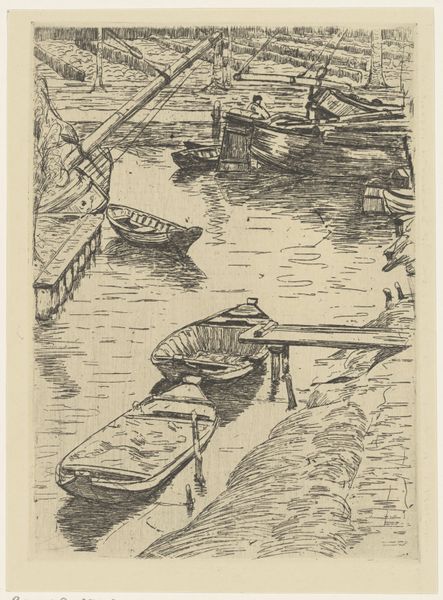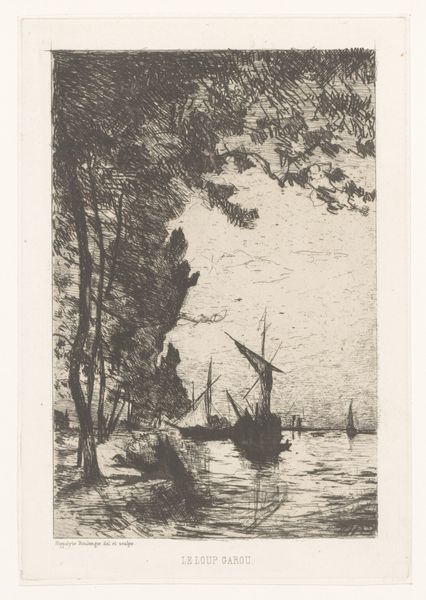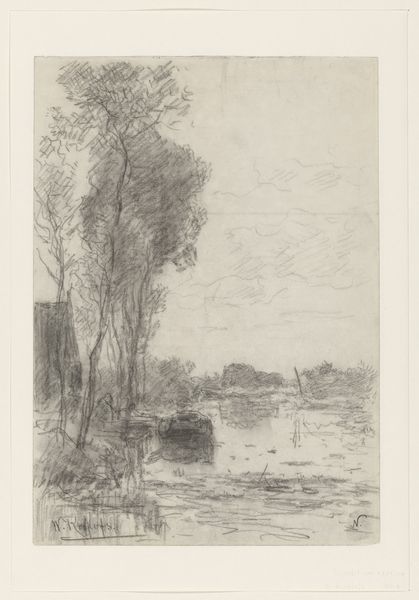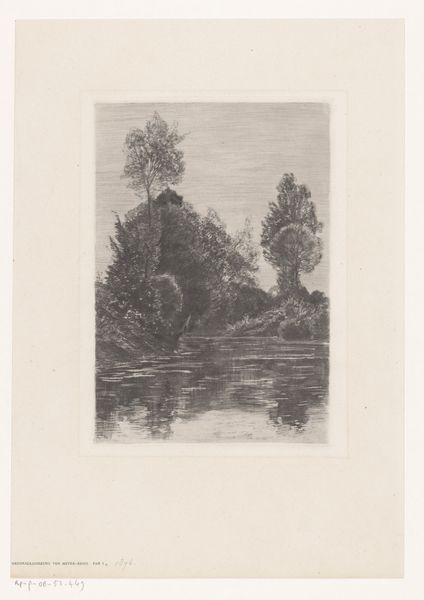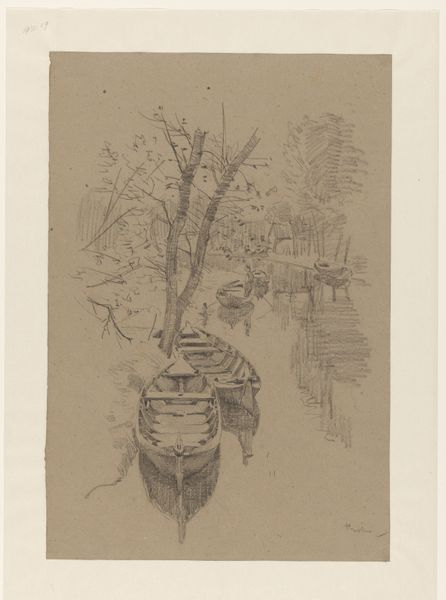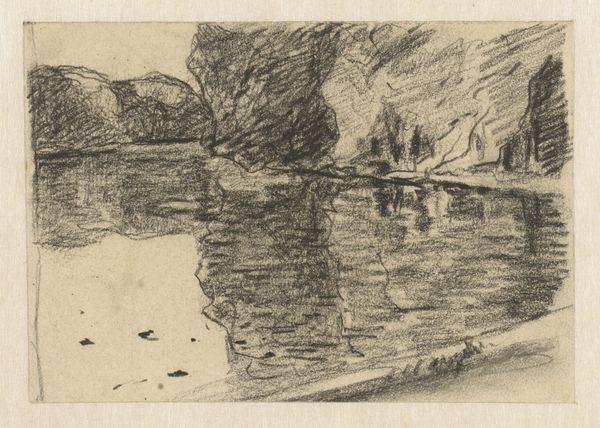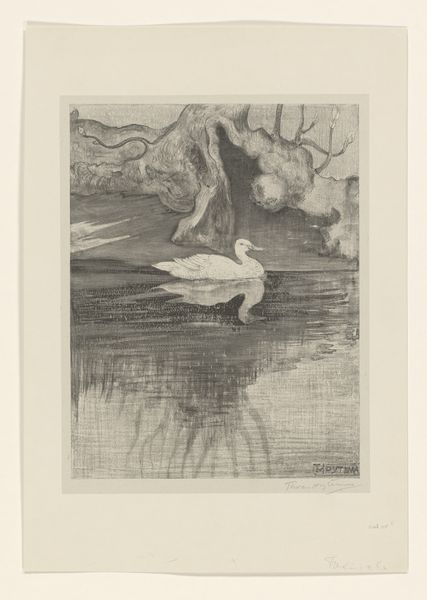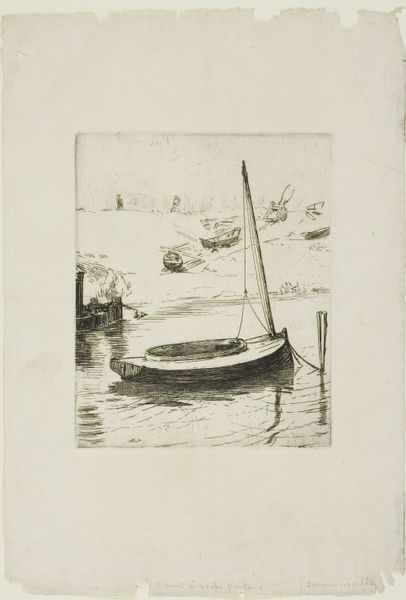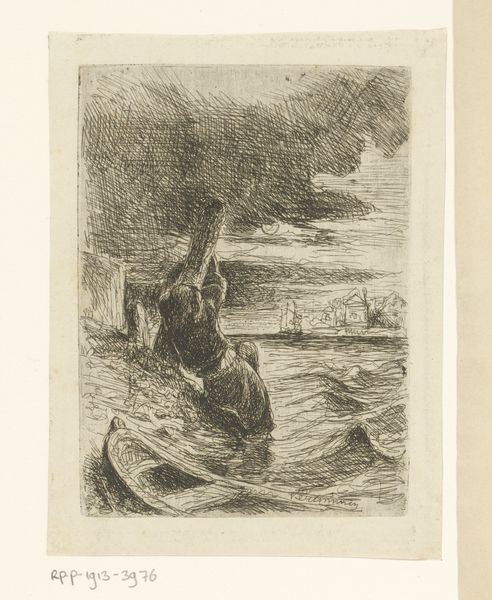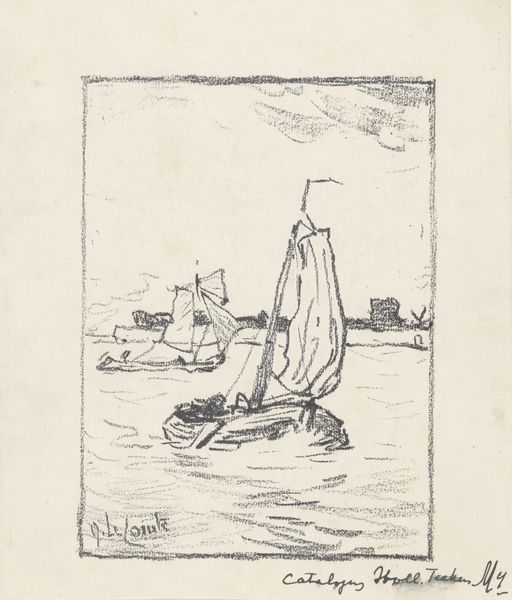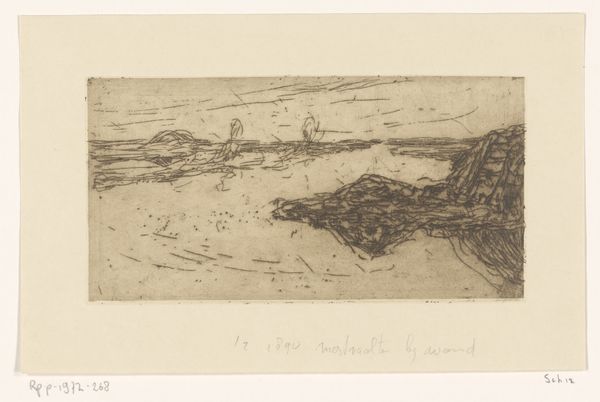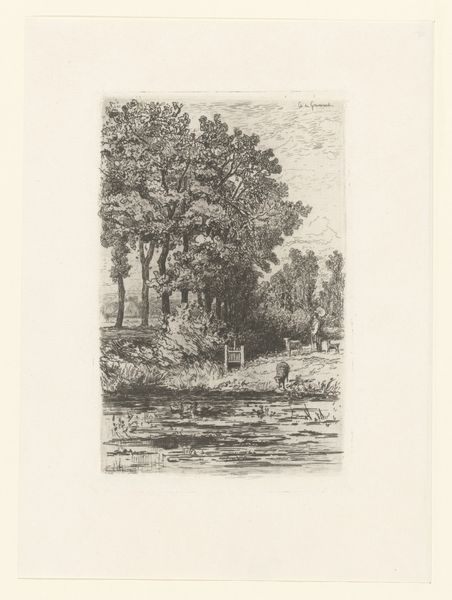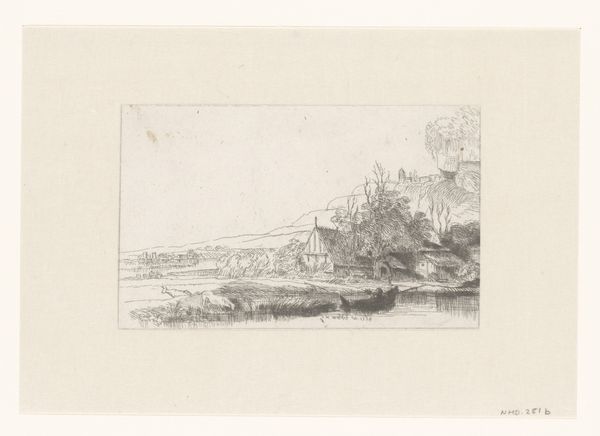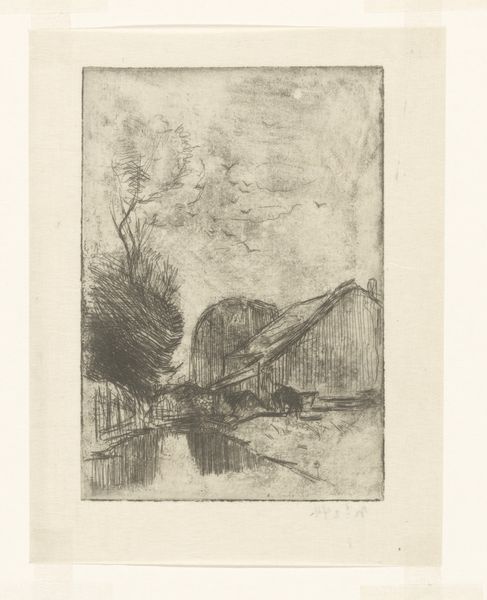
drawing, print, ink, pencil
#
drawing
#
light pencil work
#
ink drawing
#
dutch-golden-age
# print
#
pen sketch
#
pencil sketch
#
landscape
#
personal sketchbook
#
ink
#
ink drawing experimentation
#
pen-ink sketch
#
pencil
#
sketchbook drawing
#
pencil work
#
sketchbook art
#
realism
Dimensions: height 400 mm, width 303 mm
Copyright: Rijks Museum: Open Domain
Editor: This is "Vaart bij Leidschendam" by Carel Nicolaas Storm van 's-Gravesande, dating sometime between 1851 and 1902. It's an ink and pencil drawing. I find the composition quite striking, the way the artist uses line to create depth. How do you interpret this work through a formalist lens? Curator: The composition certainly dictates our reading. The linear precision in the foreground boat draws the eye, doesn't it? Consider how that contrasts with the hazy, almost indistinct treatment of the buildings in the distance. Editor: Yes, the crispness of the foreground versus the ethereality of the background is really interesting. It almost feels like two different worlds. Curator: Precisely. Observe how the artist modulates line weight to suggest atmospheric perspective. The density of lines near the boats versus the thin strokes used for distant structures. What does this signify? Editor: Maybe a commentary on the tangible versus the intangible, or perhaps a visual representation of memory fading over time? Curator: An interesting reading. Note, too, the restricted tonal range. The absence of strong contrast flattens the image, calling attention to the surface, reminding us of the artwork’s inherent two-dimensionality. The materiality of the ink and pencil become paramount, eclipsing any straightforward representational agenda. Editor: So, instead of reading it as a straightforward landscape, we're meant to consider the artist's technical choices and how they impact our perception? Curator: Exactly. The artwork becomes a self-referential object, prompting us to consider not *what* is depicted, but *how* it is depicted, thus focusing our gaze on its pure, autonomous form. Editor: That makes so much sense! I appreciate how your perspective illuminates the artist's formal decisions. I'll never look at a landscape drawing the same way again. Curator: And hopefully, you will find even more layers of interpretation to enhance your experience of art.
Comments
No comments
Be the first to comment and join the conversation on the ultimate creative platform.
